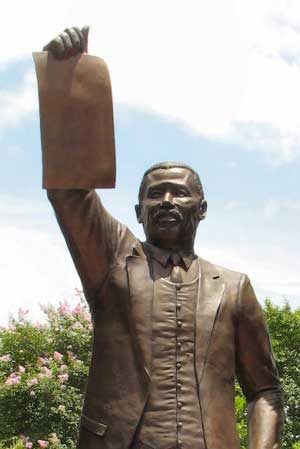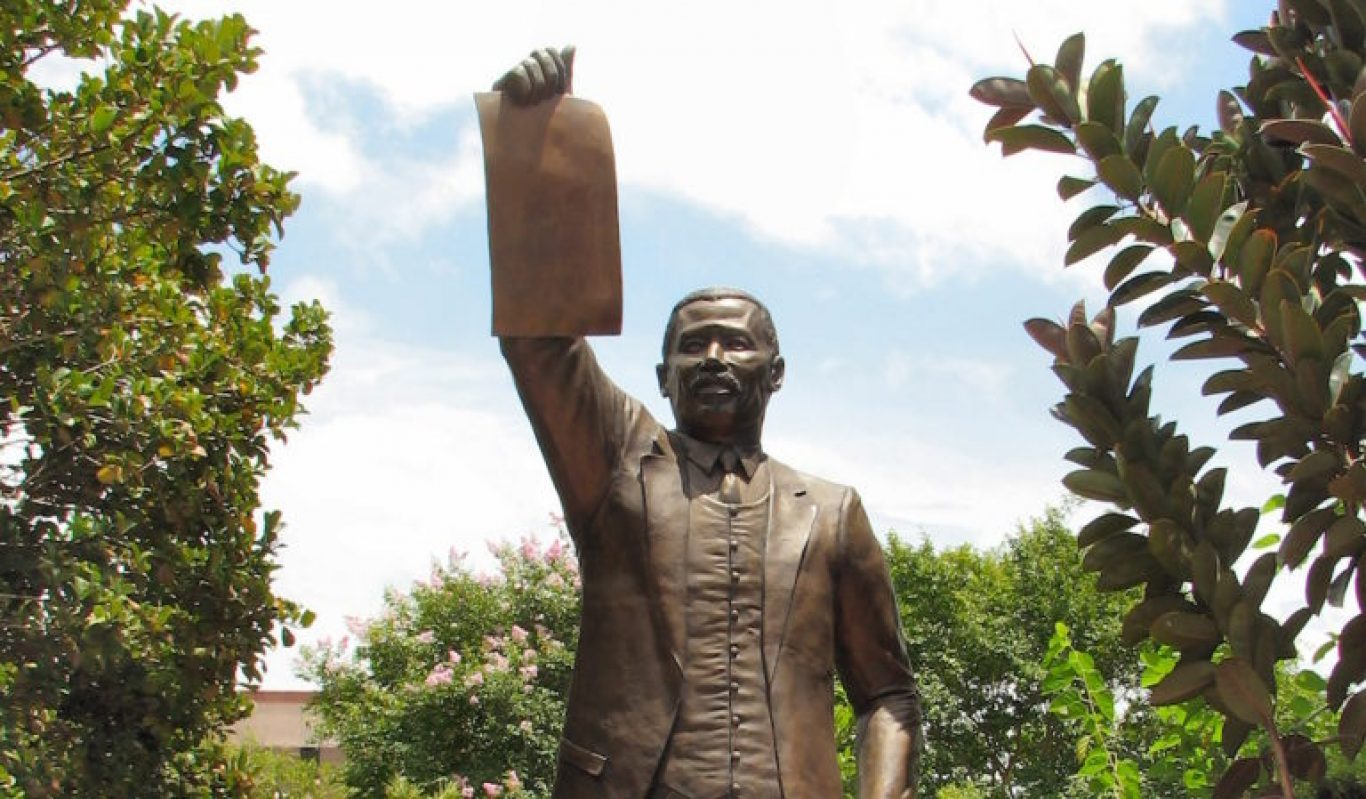Why Juneteenth is Important
Why Juneteenth is Important
Celebrating & Acknowledging Freedom Day
June 18, 2019 – On June 19, Oregon Food Bank will observe Juneteenth (also known as Freedom Day), a holiday commemorating the abolishment of slavery in 1865 in Texas and the Confederate South, nearly two-and-half years after Abraham Lincoln issued the Emancipation Proclamation on January 1, 1863.
These events eventually resulted in the ratification of the 13th Amendment, which states:
“Neither slavery nor involuntary servitude, except as a punishment for crime whereof the party shall have been duly convicted, shall exist within the United States, or any place subject to their jurisdiction.”
Across the country, African Americans and allies will be celebrating Freedom Day through barbecues, rodeos and festivities while acknowledging the impacts of slavery on the African diaspora.
Here at Oregon Food Bank, we are profoundly proud to join in celebrating the abolishment of slavery through our observance of Juneteeth this year. We do so while also recognizing the consequences of creating constitutionally-endorsed conditions to freedom, and to legally condoning government-sponsored slavery through the prison system.
What followed Emancipation was the disproportionate impact of mass incarceration, discriminatory housing policies, and a lack of economic investment in African American communities. Although Juneteenth is a day to celebrate freedom and equality, African Americans experienced decades of racial discrimination and injustices and have yet to enjoy full freedom from slavery.
The statistics are staggering.
African Americans experience higher rates of hunger, poverty, unemployment and incarceration.
- African American households are twice as likely to be food insecure than white families. (USDA Household Food Security in the United States, 2018)
- The poverty rate for African American households is 21.2% vs. 8.7% for white households. (Henry J Kaiser Family Foundation, 2017)
- African American unemployment is at least twice as high as white unemployment. (Economic Policy Institute, 2019)
- African Americans are incarcerated at more than five times the rate than whites. (Pew Research Center, 2019)

Al Edwards is a former member of the Texas Legislature. In 1979, he authored and sponsored House Bill 1016, making June 19 (“Juneteenth”) a state paid holiday in Texas.
“Every year we must remind successive generations that this event triggered a series of events that one by one defines the challenges and responsibilities of successive generations. That’s why we need this holiday.”
– Al Edwards
From higher rates of poverty and food insecurity, to unemployment and mass incarceration, these statistics reflect a deeper issue in America: the continued existence of two histories, black and white, separate and unequal and the stark, persisting impacts of discrimination.
Juneteenth is a holiday that should be recognized and honored by all in the United States. In our work of addressing root causes of hunger, we’re raising awareness and working towards uprooting policies, practices, and behaviors that uphold systemic injustices that perpetuate conditions of poverty and hunger.
Our food programs and public policy efforts aim to build a society where everyone can thrive – lifting our differences and working together to overcome injustices that might divide us… because no one should be hungry.
